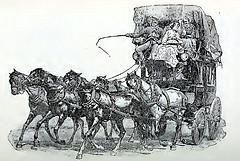This short compilation of aerial videos was taken by my 16 year old son who is on a journey to apply his skills so that can bring value to other people. This latest updated compilation is to show what he can do for businesses that need a view from above of their properties and commercial activities.
In one of those excerpts in the compilation, you can see the first free one that he did for a local engineering firm. Through a fortuitous meeting at lunch in our local pizzeria, a man connected to a big local earth moving project was intrigued by the possibilities of affordable aerial videography. After showing his drone to the man and what it could do, the rest of the engineering team was enthusiastic about letting him fly over so they could have a dramatic capture of the hard work they were doing. My teenage son’s cheerful and diligent turnaround in the following days with behind-the-scene editing and then providing them with links and video copies was what opened the doors for being approached by another engineering team. That team wanted him to document their project in another city – but this time for pay. I’m happy to report that the filming project has now come and gone and was a great success! Another big one is now lined up based on that last success. And on and on, this 10,000 hour talent journey will keep progressing.
What application does this have for your own son or daughter’s situation? Simply that in order to really grow your child’s talent in such a way that it brings value to other people, it is necessary for your son or daughter to gradually and systematically find ways to showcase and deliver to others with some aspect of value. This value for others means that it is not just the product itself that is important, such as the final video in this example, but also that it is served in the location, manner, and timing that is important to those who will benefit from the talent. As a parent, I take this service part of the talent so seriously, that I will halt my son’s normal school work schedule in favor of him being able to quickly agree to an onsite filming schedule that is convenient to the customer. I make the school schedule bend and flex in favor of my son’s talent development. I will make his normal math or English curriculum schoolwork step aside and allow my son to make it up later in the evening or on another day.
No matter where your child is with regards to his long-term talent development, there is most likely some aspect of it that he can use today to bring value to others besides himself. If he gets your creative parental support to find a way to do it at a young age, he will have a huge advantage of not having to wait till he is in his last year of high-school to find that creative application on his own.
Make your child’s education be the slave to your child, not the master. Make it stand up and sit down on your demand. You and your child are the masters.


